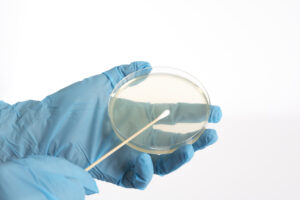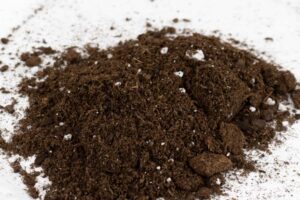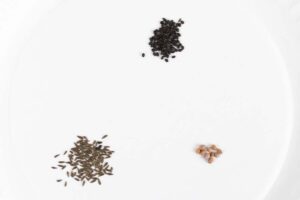Biology Science Fair Projects
A biology science fair project may help your entry stand out in the minds of judges.
Why? One reason is because they’re less common than other projects. Another reason is that under most conditions, biology projects cannot be rushed. Judges may note that when they see your planning log, notebook, or other records.
Getting Started
For tips on performing your experiment and presenting your project, see our free science fair guide. Browse our Science Fair Kits category for more project ideas and easy-to-use products.
Types of Biology Science Fair Projects
Bacteria:
Use petri dishes and agar to grow bacteria.

- What effect do household cleaners have on a bacteria culture? What about temperature? What is the best or worst environment in your house for bacteria growth?
- Are there substances in your kitchen (garlic, red pepper, curry, tea tree oil, etc.) that have natural antibacterial properties?
- Use the Gram stain method for testing whether Gram-positive or Gram-negative bacteria is more common in your house. Do common antibiotics interact differently with Gram-positive and Gram-negative bacteria?
- Studying mold growth conditions also makes an interesting experiment. What types of food mold the quickest? How does temperature affect mold growth? Are there some practical ways to slow down the growth of mold? Experiment with different types of preservatives to see how they prevent mold growth.
- Does bacteria grow in a predictable pattern? Try an experiment by making thumbprint, fingerprint, or handprint bacteria cultures using agar and petri dishes.
- How much bacteria grows in the mouth and what effects do common cleaning techniques have on bacteria growth? Consider brushing with a dry toothbrush, comparing different toothpastes, mouthwashes, and flossing as well as time spent cleaning teeth to find which methods work best to keep the mouth clean.
- Is a dog’s mouth really cleaner than a human’s?
- Use GloGerms to simulate the behavior of germs. Experiment to find the best ways to eliminate germs from hands and surfaces. (Test water temperature, soaps, length of time spent washing, etc.)
- See a sample step-by-step project and more project ideas in our Bacteria Science Project Guide.
Botany:
- Design an experiment to experiment with leaf color pigments. (You might compare pigments of different species of leaves or leaves at different times of year.)
- How do plants react to more or less light? What effect does wind or pressure have on plants?

- What happens when different types of soil or fertilizers are used on the same type of plant?
- How do heat and cold affect sprouting?
- How do different soil types affect the ability of roots to anchor the plant?
- Does light wavelength affect plant growth?
- What is the effect of acid rain on plant growth?
- Set up an experiment to measure the rate of photosynthesis and see the effects of temperature, light intensity, or concentration of CO2.
- Design an experiment to discover the effects of abnormal radiation on plant growth, using irradiated seeds that are treated at different radiation levels.

- Try growing seeds from different fruit that you’ve eaten. Which ones grow best?
Human Body & Anatomy:
- Test reflexes, hearing, lung capacity, or vision. Does one age group seem to have better results than another?
- Does your nose have anything to do with taste?
- How does age affect peripheral vision?
- How does the pH level of hair products affect hair quality? (Use pH strips for testing.)
- Can petting an animal lower your heart rate? Is there a difference between petting your own pet and petting an animal that you are not attached to?
- Does the heart rate of an animal decrease while it is being petted?
- Is there a difference between video games that make the player be physically active versus nonphysical video games on the player’s heart rate or blood pressure?
Insects:
Soil, Water, Acid Rain, and the Environment:
- Do the organisms found at different levels of a pond differ significantly? You might try re-creating a pond “cross section” of life.
- Where do you find the most polluted water locally? What about water with the highest and lowest pH? (Use a water test kit.) Does this have an effect on the organisms (fish, insects, algae, protozoa, frogs, etc.) that live in or next to it?
- Investigate which pH and chemical levels are most common in your area. How do garden soils with different amounts of nitrogen, phosphorus, potash, or pH compare? (Use a soil analyzer.)
- Which de-icing agent used on roads in winter has the least negative environmental impact?
- You can make artificial acid rain by taking distilled water and slowly adding sulfuric acid (one drop at a time) until the pH of the water reads about 4.0.
- You may also be able to collect rain water and test its pH level to see if it is acidic enough (pH ~ 4.0) for your experiment.
- Do our soils show the effects of acid rain?
- Can a base such as limestone or limewater be used to protect plants from acid rain?
- Can an antacid tablet like Tums or Alka-seltzer be used to protect soils from acid rain?
- Does acid rain affect the algae and protozoa found in ponds? Do a comparative study with protozoa grown in distilled water versus protozoa found in a pond that might have been affected by acid rain.
- Does acid rain affect the growth of ferns or moss?
Zoology:
- Study brine shrimp or protozoa; what happens if you add mild pollutants to their habitat? (See our brine shrimp project.) Do different species (such as amoeba and euglena) react differently? (For testing specific species, you may want to get a live culture.)
- What effect does temperature have on brine shrimp or Triops? Compare hatching, growth, and population rates in a warmer environment vs. a colder one.
- How do earthworms help improve soil quality?
Science Fair Regulations
Most science fairs have regulations regarding the use of living material, especially bacteria, animals, and humans. You may need to get advance approval for your project, so check your fair’s guidelines before beginning! You can go here to find the rules for ISEF-affiliated science fairs.
Biology / Life Science
Welcome! Read other Biology / Life Science articles or explore our the rest of the Resource Center which consists of hundreds of free science articles!




